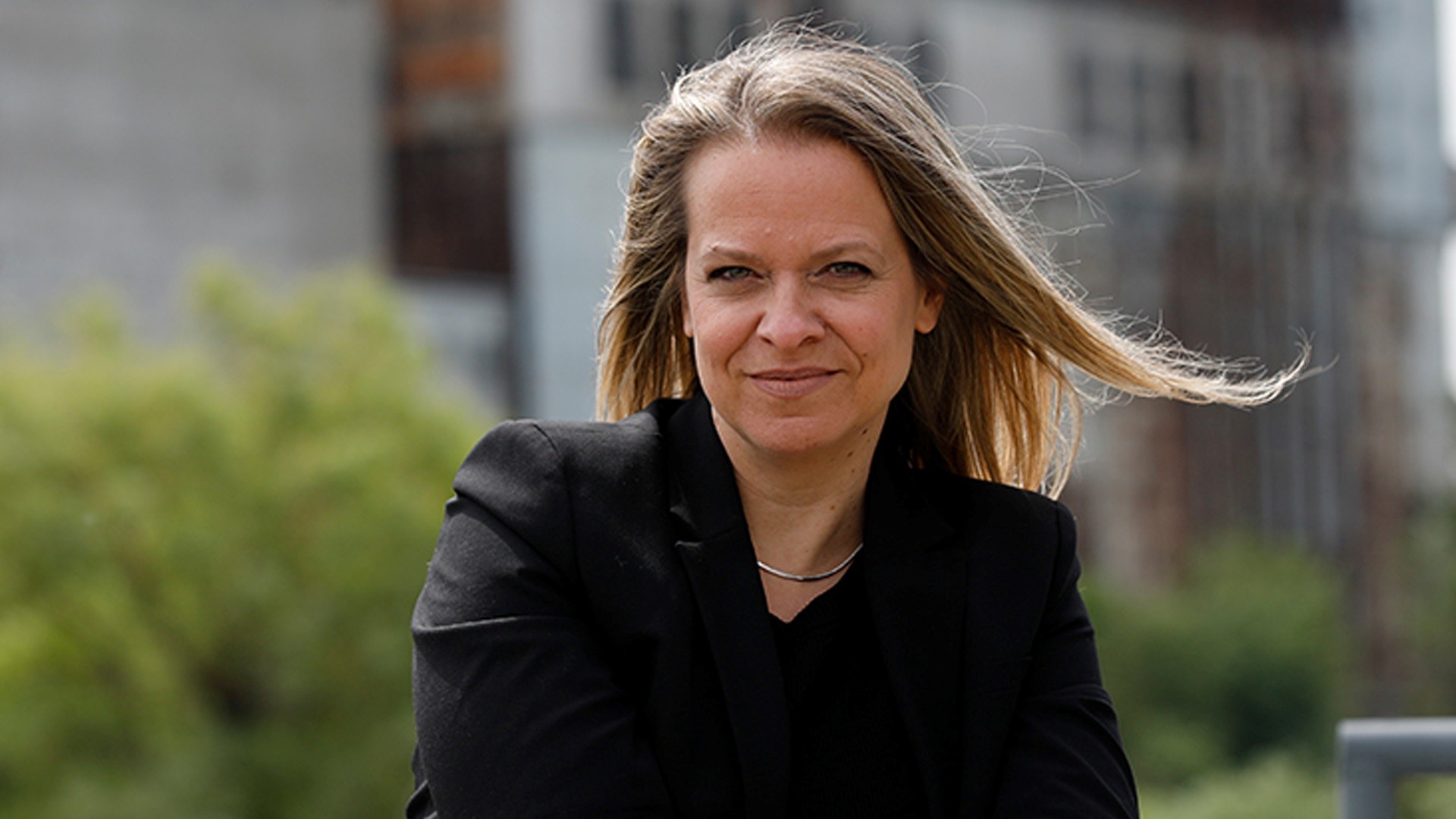Great Concordian: Natalie Voland, real-estate developer and social entrepreneur
 “The collaboration with Concordia is our secret weapon, providing valuable real-world data, from design through construction and operation, to help us refine hybrid energy systems and other aspects of our projects.”
“The collaboration with Concordia is our secret weapon, providing valuable real-world data, from design through construction and operation, to help us refine hybrid energy systems and other aspects of our projects.”
Natalie Voland, PhD candidate (Individualized Program, Engineering), is a real-estate developer and social entrepreneur who has spent more than two decades redefining the industry through a sustainability-driven, community-oriented approach.
With a background in social work, she has transformed her late father’s real estate business, Gestion Immobilière Quo Vadis, into a leader in ESG (Environmental, Social, and Governance) and B Corp-certified development. Her work focuses on adaptive reuse, historic preservation and the creation of inclusive economic ecosystems for small and medium-sized enterprises (SMEs).
As founder and President of Quo Vadis and founder and Chief Regenerative Officer of Groupe Danu, Voland is at the forefront of the movement to make real estate a vehicle for social and environmental change. Groupe Danu, a collaboration between Quo Vadis Capital and Cloriacité, is advancing large-scale carbon-neutral housing projects in the province of Quebec.
One of its flagship developments, Cloria Lévis, is designed to set new sustainability standards by integrating innovative construction practices, energy-efficient technologies and extensive academic research. This initiative is just the beginning of a broader commitment to building 5,000 carbon-neutral housing units over the next decade.
Voland’s leadership extends beyond development projects. She actively contributes to academia and policy discussions, working with institutions such as Concordia’s Next-Generation Cities Institute, where she co-founded the ABC Low Carbon Accelerator. Her doctoral research examines the barriers and opportunities for private developers to construct climate-resilient buildings, an issue that aligns with her hands-on efforts to push the industry forward.
“One of the most rewarding aspects of my work is the ability to integrate research directly into the projects we’re developing,” says Voland. “The collaboration with Concordia is our secret weapon, providing valuable real-world data, from design through construction and operation, to help us refine hybrid energy systems and other aspects of our projects.”
Under Voland’s direction, Quo Vadis has converted millions of square feet of industrial space into commercial and office hubs that support Montreal’s entrepreneurial ecosystem. Among her notable projects are the Complexe Dompark, which achieved Canada’s Zero Carbon Building Standard certification, and Salon 1861, a restored heritage church repurposed into a co-working, event and research space.
Recognized for her impact, Voland has chaired and spoken at several real estate conferences around the world. The Great Concordian serves on several boards, including the Climate Partnership of Montreal and the Building Decarbonisation Alliance. Her work embodies a vision where real estate is not merely about property transactions but about fostering sustainable, inclusive and thriving urban communities.
When you reflect on your time as a Concordia student, what stands out?
Natalie Voland: What stands out to me is how Concordia became the home I had always wanted. Initially, I got involved as a businessperson looking to bring academia and research directly into my company.
Concordia offered me a valuable resource to strengthen my business through faculty collaborations. I realized that Concordia wasn’t just a place for research — it was a place where I could get continuous support, benefit from international perspectives and make a tangible impact in my field. The opportunity to connect with such a diverse range of people, including students from all over the world, truly enriched my experience and my company.
What are some of the factors that have enabled your success?
NV: The ability to understand that I don’t know everything. In the real-estate industry, it’s easy to think that experts know it all, but I’ve found that being open to learning and connecting with others has been my strongest skill.
Concordia helped me build a world-class research and development team, and through my collaborations there, I was able to leverage a diverse set of perspectives. This openness to innovation, combined with the continuous learning environment at Concordia, has been crucial for my growth.
What advice do you have for students who may want to follow in your footsteps?
NV: Keep your mind wide open, work with people from various fields and never limit yourself to one faculty. The key to success in sustainability and real estate is recognizing that it’s an evolving field. You can’t know everything. You should be willing to ask tough questions, be resilient and not give up when others tell you it won’t work.
Surround yourself with people who can help you think outside the box. Also, develop a thick skin — innovation often comes with resistance, but the challenges are what make the success so meaningful.
How does it feel to be a Great Concordian?
NV: It’s truly an honour to be recognized. When I received the letter, I took a moment to reflect on how far I’ve come. Being welcomed at Concordia as a businessperson and having the opportunity and support to finish my education later in life has been incredibly rewarding.
To be named alongside other incredible Concordians who have accomplished so much is humbling. It motivates me to continue pushing forward and striving to contribute even more to the university’s community.
Take pride in our Great Concordians!
Fifty standout graduates are receiving this distinction as part of our university’s 50th anniversary. Each recipient has made a significant impact on their field and on society.
One Great Concordian will be revealed weekly until September 2025.
Our new cohort of honourees builds on our original 40 Great Concordians.

